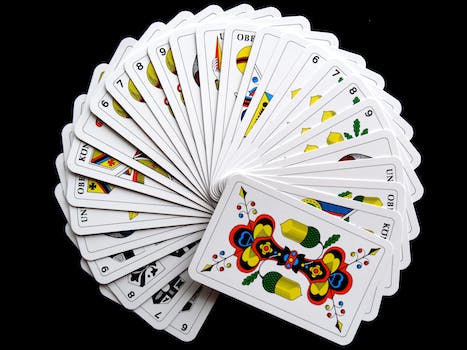Understanding Poker Betting: Rules, Strategies, and Tips is essential for any player who wants to improve their game. In poker, betting is a crucial aspect that can make or break a player’s chances of winning. Knowing the rules of betting, as well as the different strategies and tips, can help players make better decisions and increase their chances of success. This guide will provide an overview of the basics of poker betting, as well as some advanced strategies and tips to help players take their game to the next level.
Poker Betting Rules: Understanding the Basics
Poker is a game of skill, strategy, and luck. One of the most important aspects of the game is betting. Understanding the rules of poker betting is crucial to becoming a successful player. In this article, we will discuss the basics of poker betting, including the different types of bets, the order of play, and the importance of position.
The first thing to understand about poker betting is the different types of bets. There are three main types of bets in poker: the ante, the blind, and the raise. The ante is a small bet that all players must make before the hand is dealt. The blind is a larger bet that is made by the two players to the left of the dealer. The player to the immediate left of the dealer makes the small blind, and the player to their left makes the big blind. The raise is a bet that is made after the initial bets have been placed. A player can raise the bet by adding more chips to the pot.
The order of play in poker betting is also important. The player to the left of the big blind is the first to act. They can either call the big blind, raise, or fold. The action then moves clockwise around the table. Each player has the same options: call, raise, or fold. If a player raises, the next player must either call the raise, raise again, or fold. This continues until all players have either called or folded.
Position is another important factor in poker betting. The player in the dealer position has the advantage of acting last. This means they can see what the other players have done before making their own decision. The player in the small blind position has the disadvantage of acting first. This means they must make a decision without knowing what the other players will do. The player in the big blind position has a similar disadvantage, but they have already made a bet, so they have less to lose if they fold.
There are also different strategies that players can use in poker betting. One strategy is to play tight. This means only playing strong hands and folding weaker hands. Another strategy is to play loose. This means playing more hands and being more aggressive with bets. A third strategy is to bluff. This means making a bet or raise with a weak hand in the hopes of making the other players fold.
Finally, there are some tips that can help players improve their poker betting skills. One tip is to pay attention to the other players. This means watching their actions and trying to figure out what they might have. Another tip is to be patient. This means waiting for a strong hand before making a big bet. A third tip is to manage your bankroll. This means only betting what you can afford to lose.
In conclusion, understanding the rules of poker betting is crucial to becoming a successful player. There are different types of bets, an order of play, and the importance of position. There are also different strategies that players can use, such as playing tight, playing loose, and bluffing. Finally, there are some tips that can help players improve their poker betting skills, such as paying attention to the other players, being patient, and managing their bankroll. By following these guidelines, players can increase their chances of winning at poker.
Advanced Poker Betting Strategies for Experienced Players
Advanced Poker Betting Strategies for Experienced Players
Poker is a game of skill, strategy, and luck. While luck plays a significant role in the game, it is the skill and strategy that separates the winners from the losers. One of the most crucial aspects of poker is betting. Betting is the act of putting money into the pot in the hope of winning it back. In this article, we will discuss advanced poker betting strategies for experienced players.
Bluffing
Bluffing is a technique used by poker players to deceive their opponents into thinking they have a better hand than they actually do. Bluffing is an essential skill in poker, and it can be used to win pots that you would otherwise lose. However, bluffing should be used sparingly and only when you have a good read on your opponents.
Semi-Bluffing
Semi-bluffing is a technique used by poker players to deceive their opponents into thinking they have a better hand than they actually do, while still having a chance to improve their hand. Semi-bluffing is an effective strategy when you have a drawing hand, and you want to build the pot while still having a chance to improve your hand.
Slow Playing
Slow playing is a technique used by poker players to deceive their opponents into thinking they have a weaker hand than they actually do. Slow playing is an effective strategy when you have a strong hand, and you want to build the pot while still keeping your opponents in the game.
Position
Position is a crucial aspect of poker, and it can significantly impact your betting strategy. The position refers to where you are seated at the table in relation to the dealer. The later your position, the more information you have about your opponents’ hands, and the more control you have over the pot.
Aggression
Aggression is an essential aspect of poker, and it can be used to intimidate your opponents and win pots. Aggression can be displayed through betting, raising, and re-raising. However, aggression should be used sparingly and only when you have a good read on your opponents.
Pot Odds
Pot odds are the ratio of the size of the pot to the size of the bet. Pot odds are essential in poker, and they can help you determine whether or not to call a bet. If the pot odds are in your favor, you should call the bet. If the pot odds are not in your favor, you should fold.
Conclusion
In conclusion, advanced poker betting strategies are essential for experienced players who want to take their game to the next level. Bluffing, semi-bluffing, slow playing, position, aggression, and pot odds are all crucial aspects of poker betting that can significantly impact your game. However, it is essential to use these strategies sparingly and only when you have a good read on your opponents. Remember, poker is a game of skill, strategy, and luck, and the best players are those who can effectively balance all three.
Tips for Effective Poker Betting: Maximizing Your Winnings
Poker is a game of skill, strategy, and luck. One of the most important aspects of the game is betting. Effective poker betting can help you maximize your winnings and minimize your losses. In this article, we will discuss some tips for effective poker betting.
1. Understand the Pot Odds
Pot odds are the ratio of the amount of money in the pot to the amount of money you need to call to stay in the game. Understanding pot odds is crucial to making informed betting decisions. If the pot odds are in your favor, you should bet. If they are not, you should fold.
2. Pay Attention to Your Opponents
Poker is a game of observation. Paying attention to your opponents can give you valuable information about their playing style, tendencies, and tells. This information can help you make better betting decisions.
3. Bet with a Purpose
Every bet you make should have a purpose. Whether it is to bluff, extract value, or protect your hand, you should always have a reason for your bet. Betting without a purpose is a surefire way to lose money.
4. Don’t Be Predictable
If your opponents can predict your betting patterns, they can exploit them. Varying your bets can keep your opponents guessing and make it harder for them to read your hand.
5. Know When to Fold
Knowing when to fold is just as important as knowing when to bet. If you have a weak hand, it is better to fold than to continue betting and lose more money. Don’t let your ego get in the way of making the right decision.
6. Manage Your Bankroll
Effective poker betting also involves managing your bankroll. You should never bet more than you can afford to lose. Set a budget for yourself and stick to it. Don’t chase losses by betting more money than you should.
7. Practice Good Table Etiquette
Good table etiquette is important in poker. Don’t slow down the game by taking too long to make your betting decisions. Don’t talk about your hand while the game is still in progress. And always be respectful to your opponents.
In conclusion, effective poker betting is a crucial aspect of the game. Understanding pot odds, paying attention to your opponents, betting with a purpose, varying your bets, knowing when to fold, managing your bankroll, and practicing good table etiquette can all help you maximize your winnings and minimize your losses. Remember, poker is a game of skill, strategy, and luck. By following these tips, you can improve your skills and increase your chances of winning.
Common Mistakes to Avoid When Betting in Poker Games
Poker is a game of skill, strategy, and luck. One of the most important aspects of the game is betting. Betting in poker is not just about putting money on the table, it is about making strategic decisions that can help you win the game. However, many players make common mistakes when betting in poker games. In this article, we will discuss some of these mistakes and how to avoid them.
The first mistake that many players make is betting too much too soon. This is especially true for beginners who are not familiar with the game. They often get excited and bet too much on their first few hands. This can be a costly mistake as it can quickly deplete their bankroll. It is important to start with small bets and gradually increase them as you gain more experience and confidence.
Another common mistake is not paying attention to the other players at the table. It is important to observe their behavior and betting patterns. This can give you valuable information about their hand and help you make better decisions. For example, if a player is consistently raising, it may indicate that they have a strong hand. On the other hand, if a player is constantly folding, it may indicate that they have a weak hand.
Bluffing is an important part of poker, but many players overdo it. They bluff too often and too aggressively, which can be a costly mistake. Bluffing should be used sparingly and strategically. It is important to consider the other players at the table and their behavior before attempting to bluff. If you are not confident in your ability to bluff, it is better to avoid it altogether.
Another mistake that many players make is not adjusting their betting strategy based on the situation. For example, if you are playing in a tournament, you may need to be more aggressive with your betting to stay ahead of the competition. On the other hand, if you are playing in a cash game, you may need to be more conservative with your betting to avoid losing too much money.
One of the biggest mistakes that players make is not managing their bankroll properly. It is important to set a budget for yourself and stick to it. This means not betting more than you can afford to lose. It is also important to avoid chasing losses by betting more money in an attempt to win back what you have lost. This can quickly lead to a downward spiral and deplete your bankroll.
In conclusion, betting in poker is a crucial aspect of the game. It requires skill, strategy, and discipline. To avoid common mistakes, it is important to start with small bets, pay attention to the other players at the table, use bluffing sparingly, adjust your betting strategy based on the situation, and manage your bankroll properly. By following these tips, you can improve your betting skills and increase your chances of winning at the poker table.Conclusion: Understanding poker betting is crucial for any player who wants to succeed in the game. It involves knowing the rules, strategies, and tips that can help you make informed decisions when placing bets. By mastering these aspects, you can increase your chances of winning and become a skilled poker player. Remember to always play responsibly and within your means.





